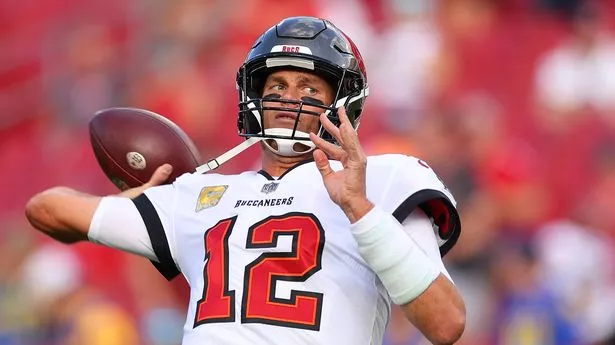Introduction
The National Football League (NFL) stands as a true titan among professional sports leagues, with an impact that extends far beyond the gridiron. Since its inception in 1920, the NFL has grown into a cultural and economic powerhouse, redefining the landscape of professional sports in the United States and around the world. This article delves into the profound influence that the NFL has had on professional sports, examining its role in shaping not only the sports industry but also the broader cultural and economic fabric of society.
- Global Reach
One of the most remarkable aspects of the NFL’s impact on professional sports is its global reach. While American football may not have the same global popularity as soccer, the NFL has successfully cultivated a massive international fan base. The league’s annual Super Bowl has become a global phenomenon, attracting millions of viewers from all corners of the world. NFL games are broadcast in over 200 countries, making it a truly international sport.
The NFL’s global expansion has not only broadened its fan base but also created new revenue streams. International games and merchandise sales have generated substantial income for the league and its teams. Moreover, the NFL has inspired the growth of American football in other countries, creating opportunities for international players to compete in the league, further diversifying its appeal.
- Television and Media Dominance
The NFL’s impact on professional sports can be measured in its unrivaled television ratings. The league’s games consistently top viewership charts, making them a cornerstone of American television. The Super Bowl, in particular, is an advertising extravaganza, with brands vying for coveted commercial slots. This unparalleled viewership has transformed the NFL into an advertising and broadcasting behemoth, with lucrative television deals driving significant revenue for the league.
The NFL’s success in this arena has set a precedent for other professional sports leagues, influencing how they approach television rights negotiations and revenue-sharing agreements. The league’s ability to secure multi-billion dollar deals has raised the bar for the entire sports industry, leading to increased competition among networks for broadcasting rights.
- Economic Impact
The NFL’s economic impact extends well beyond the league itself. It has a substantial ripple effect on local economies, particularly in cities with NFL franchises. Game days create a surge in economic activity, from ticket sales and merchandise to local businesses benefiting from increased foot traffic. Additionally, the construction of state-of-the-art stadiums has revitalized urban areas, providing jobs and fostering community development.
The success of the NFL has also encouraged the growth of fantasy football and sports betting industries, both of which generate significant revenue. These ancillary industries thrive on the NFL’s popularity, contributing to the league’s financial clout and influencing the way sports are consumed.
- Athlete Earnings
The NFL’s impact on professional sports can be seen in the earnings of its athletes. NFL players are among the highest-paid athletes in the world, with lucrative contracts and endorsement deals. The league’s salary cap system ensures a relatively even distribution of wealth among teams, preventing a small number of franchises from monopolizing talent.
This model has influenced other professional sports leagues, prompting discussions about salary caps and revenue sharing to maintain competitive balance. The NFL’s commitment to player safety and welfare has also prompted similar initiatives in other sports, emphasizing the league’s role as a trendsetter in player advocacy.
- Cultural Significance
The NFL’s impact on professional sports extends into the cultural realm. Super Bowl halftime shows have become iconic, featuring some of the world’s biggest music stars. The game itself is a cultural event, with parties, gatherings, and rituals that transcend the sport itself, including NFL trivia nights, fantasy games and watch parties. The NFL has an undeniable presence in American culture, with the Super Bowl serving as an unofficial national holiday.
Moreover, the NFL has played a role in addressing social issues. The league has been at the forefront of discussions on racial equality, with players and teams using their platforms to advocate for change. The NFL’s willingness to engage in these conversations has set an example for other sports leagues, emphasizing the league’s societal impact.
Conclusion
The National Football League’s impact on professional sports is undeniable and multifaceted. From its global reach and television dominance to its economic influence and cultural significance, the NFL has reshaped the sports landscape in profound ways. It has set standards for revenue generation, athlete earnings, and societal engagement that have influenced other professional sports leagues both in the United States and abroad. As the NFL continues to evolve, its legacy as a transformative force in the world of professional sports remains secure.


